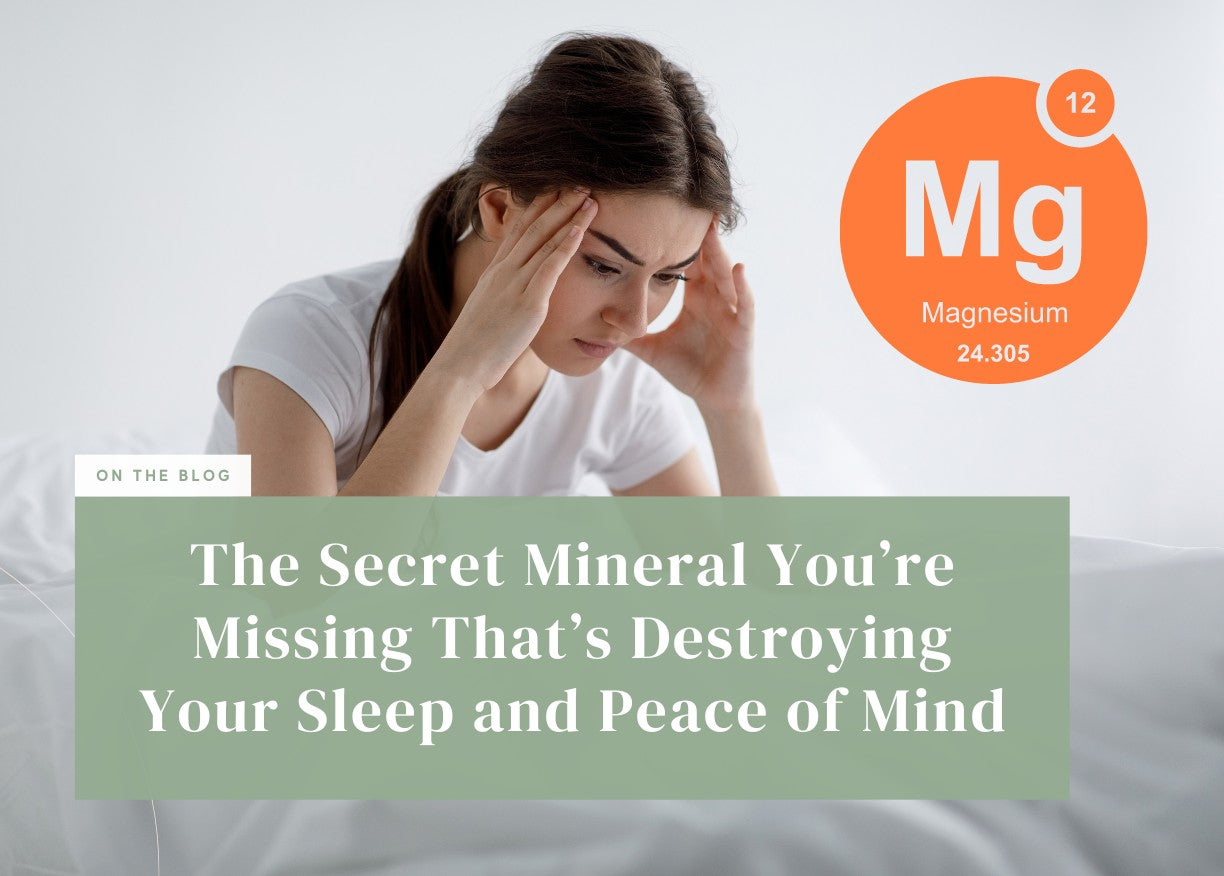The Secret Mineral You’re Missing That’s Destroying Your Sleep and Peace of Mind
Magnesium is one of the most crucial minerals for the human body, yet many people are unaware that they may be deficient. This essential mineral plays a key role in numerous bodily functions, from supporting muscle and nerve function to regulating blood pressure and keeping bones strong. However, it’s magnesium’s impact on sleep and stress management that makes it especially vital in today’s fast-paced world.
Why Magnesium Is So Important for Sleep and Stress
Magnesium is often referred to as the "relaxation mineral" because of its ability to calm the nervous system and support deep, restorative sleep. It does this by regulating neurotransmitters and hormones that promote relaxation and sleep, including gamma-aminobutyric acid (GABA). GABA helps the brain quiet down, reducing racing thoughts and making it easier to fall asleep. Without adequate magnesium levels, you might find yourself tossing and turning or waking up frequently throughout the night.
Magnesium also plays a major role in managing the body's stress response. When we are stressed, our bodies use up magnesium faster, which can lead to a deficiency. This, in turn, makes it harder to cope with stress and can lead to a vicious cycle of anxiety and poor sleep. Studies have shown that magnesium helps regulate cortisol, the body’s main stress hormone, and can help reduce the physical symptoms of anxiety(NCCIH).
Signs You Might Be Magnesium Deficient

Magnesium deficiency is more common than you might think. Some of the most common signs that you may not be getting enough include:
- Muscle Cramps or Twitches: Magnesium helps regulate muscle function, so low levels can lead to muscle cramps, twitches, and even restless leg syndrome.
- Insomnia: Struggling to fall or stay asleep could be a sign that your body is lacking magnesium.
- Fatigue and Weakness: Magnesium is essential for energy production, and a deficiency can leave you feeling constantly fatigued and weak.
- Increased Anxiety and Irritability: Because magnesium helps regulate the body’s stress response, low levels can lead to increased feelings of anxiety and irritability(NCCIH) .
How to Get More Magnesium in Your Diet
If you think you might be deficient in magnesium, the good news is that you can easily increase your intake through diet or supplements. Magnesium is found in a variety of foods, particularly:
-
Leafy Greens: Spinach, kale, and Swiss chard are rich in magnesium.

- Nuts and Seeds: Almonds, cashews, and pumpkin seeds are excellent sources.
- Legumes: Lentils, black beans, and chickpeas are packed with magnesium.
- Whole Grains: Brown rice, quinoa, and oats contain good amounts of the mineral.
- Avocados and Bananas: Both fruits provide a healthy dose of magnesium along with other beneficial nutrients.
For those who struggle to get enough magnesium through diet alone, magnesium supplements are also available. Magnesium citrate and magnesium glycinate are often recommended for their high bioavailability and gentle effect on the digestive system.
The Connection Between Sleep Quality and a Good Mattress
While increasing your magnesium intake can help promote better sleep, it’s not the only factor. A comfortable and supportive sleep environment is just as important. If you’re getting plenty of magnesium but still struggling to sleep, it could be your mattress that’s the culprit. The right mattress can make a significant difference in how deeply you sleep and how refreshed you feel in the morning.
The Honey Hybrid Organic Mattress is designed to provide the comfort and support needed for restorative sleep. With its combination of natural materials and pressure-relieving support, it helps reduce the discomfort that can lead to restless nights. Pairing a good mattress with the right levels of magnesium can help ensure that you get the deep, uninterrupted sleep your body needs to manage stress and stay healthy.
Final Thoughts
Magnesium is a powerful mineral that plays a crucial role in both sleep and stress management. If you find yourself struggling with poor sleep, muscle cramps, or increased anxiety, it might be time to take a closer look at your magnesium intake. By making small changes to your diet or supplement routine—and ensuring you have a mattress that supports quality sleep—you can help your body recover, relax, and thrive.




